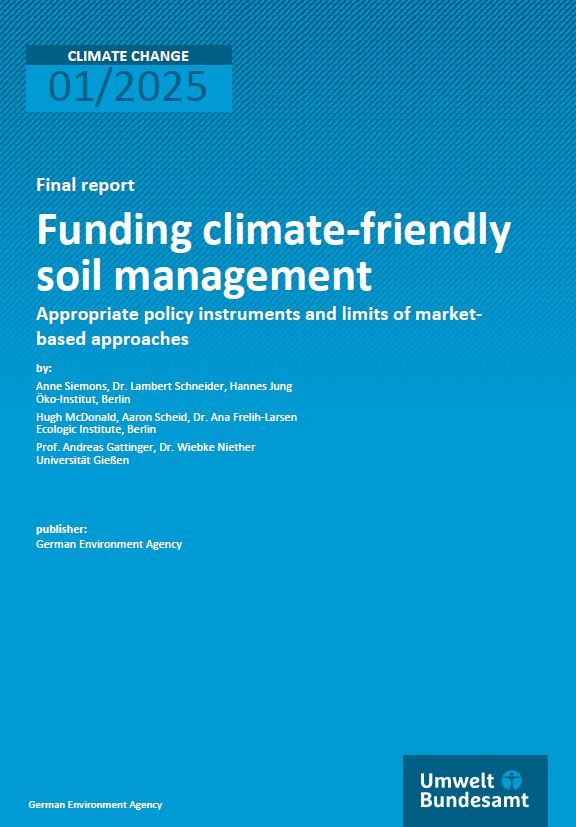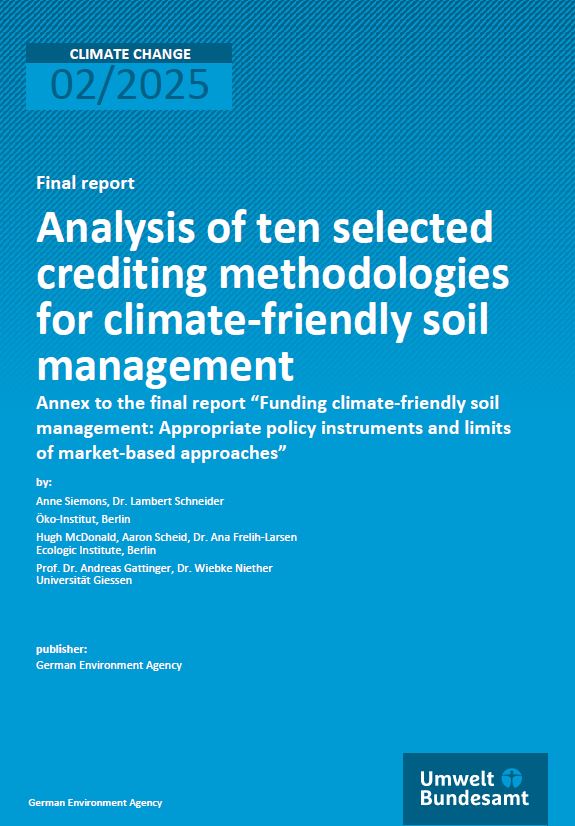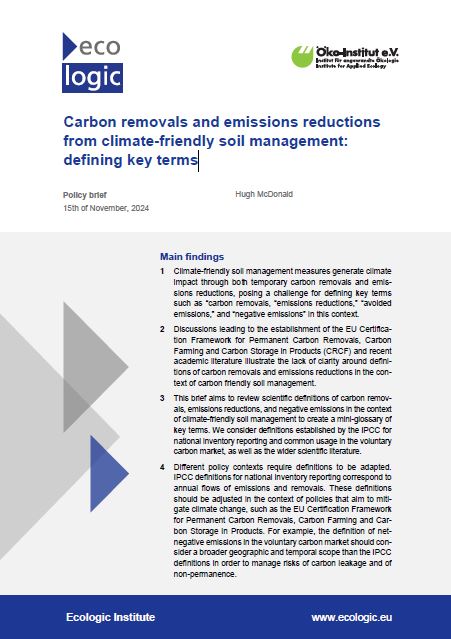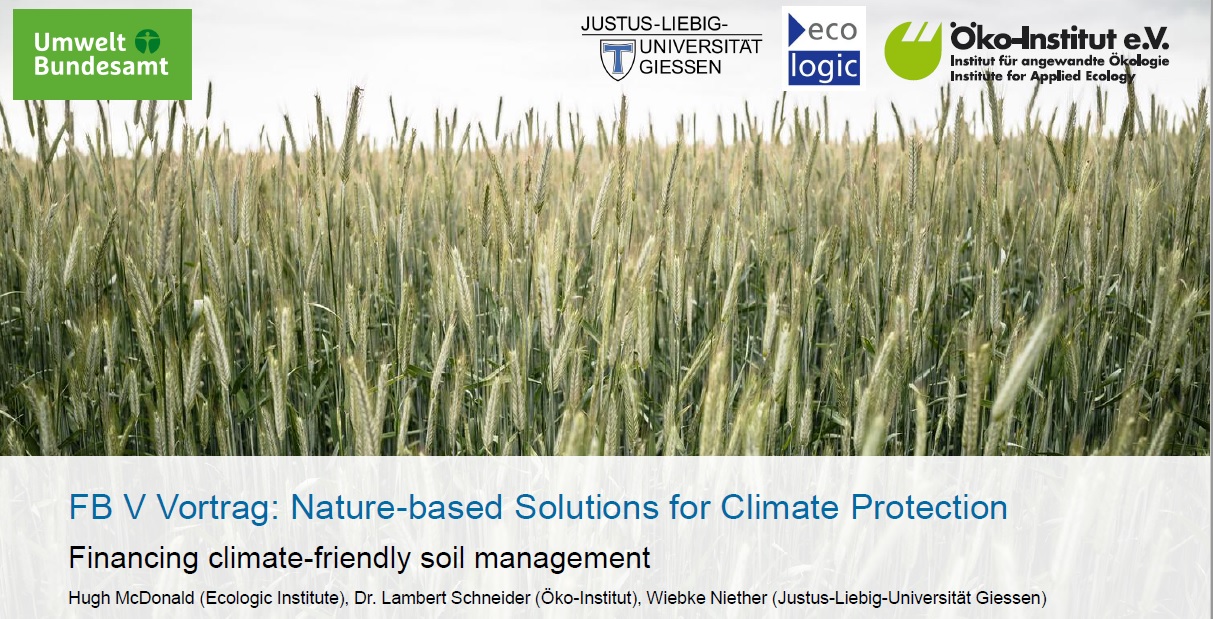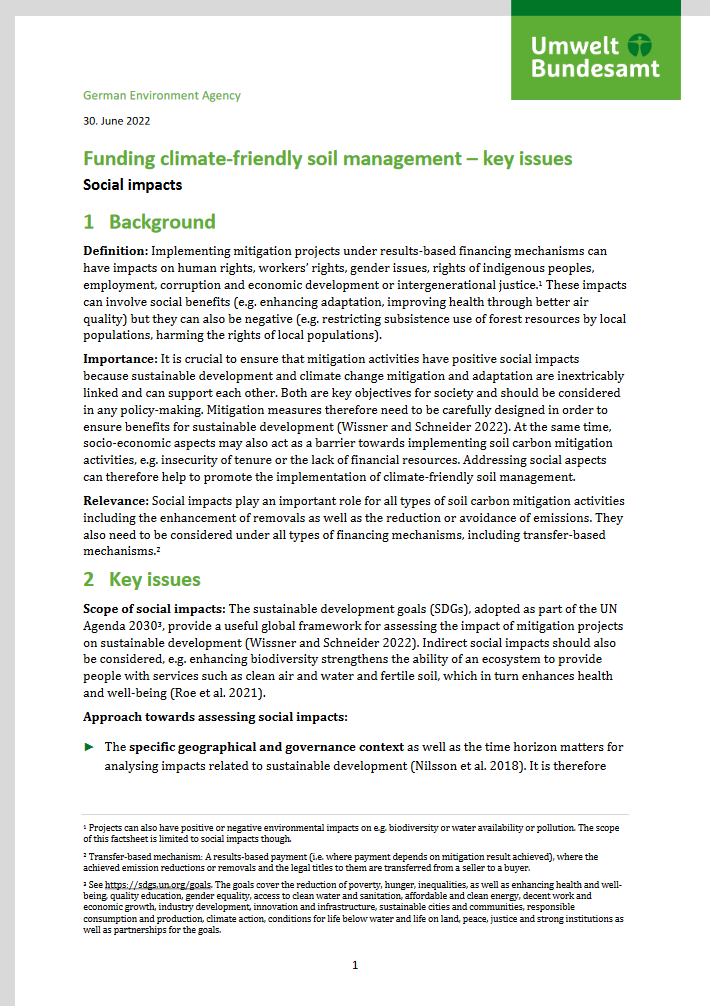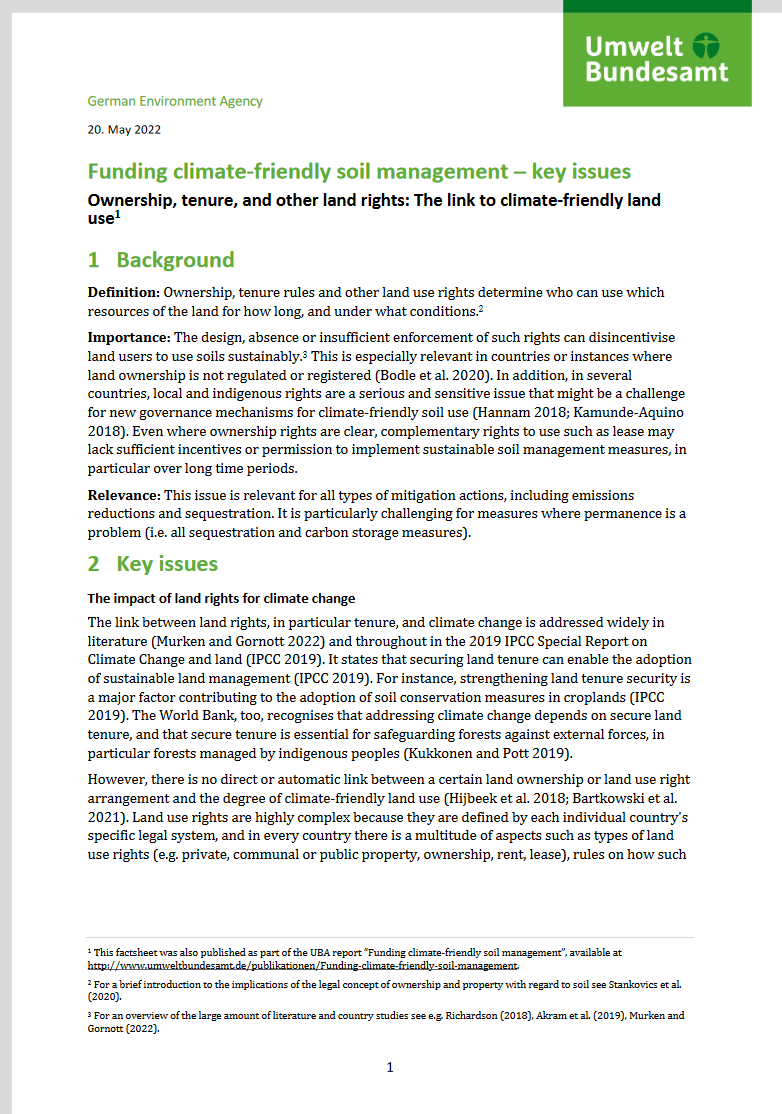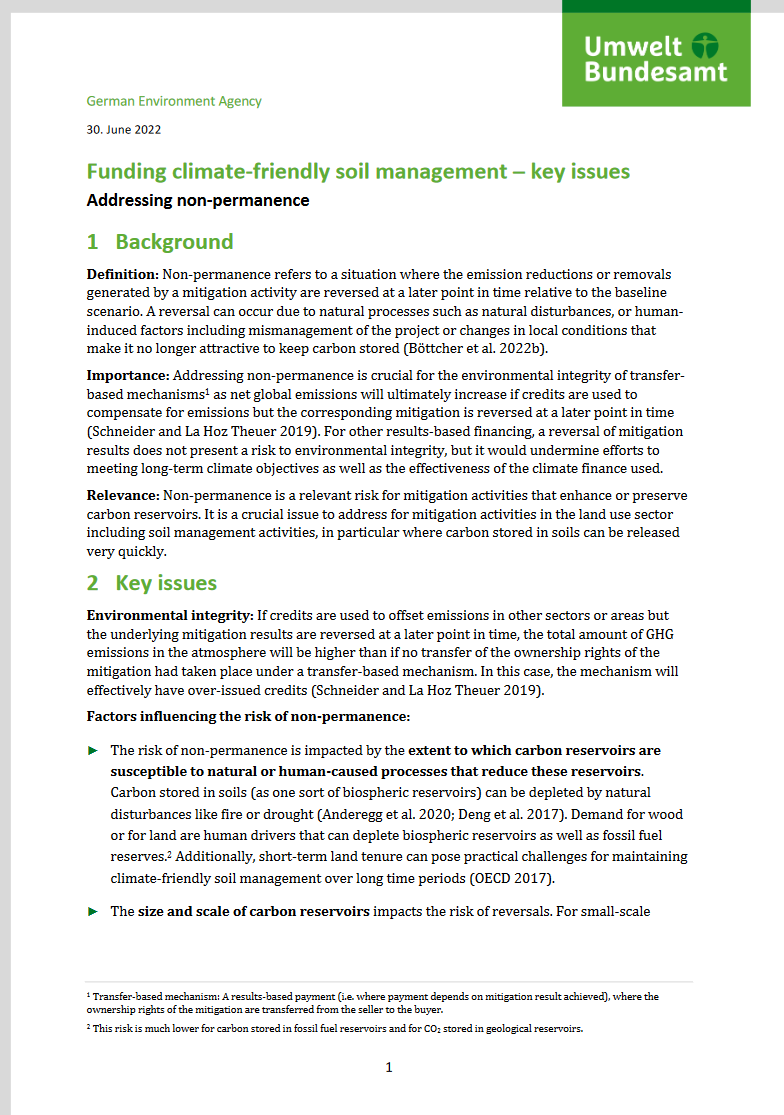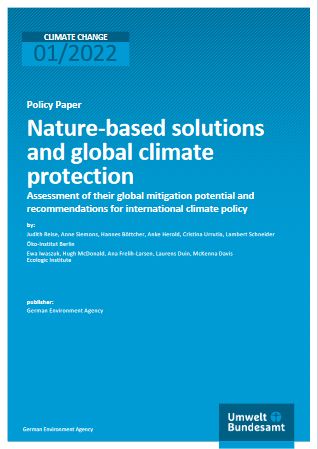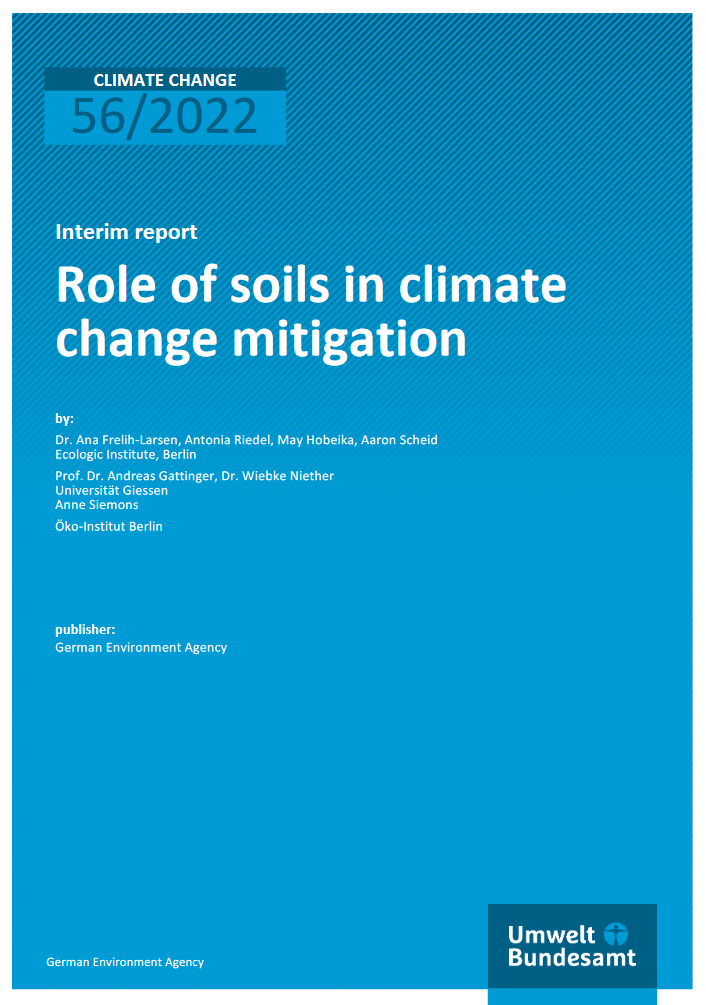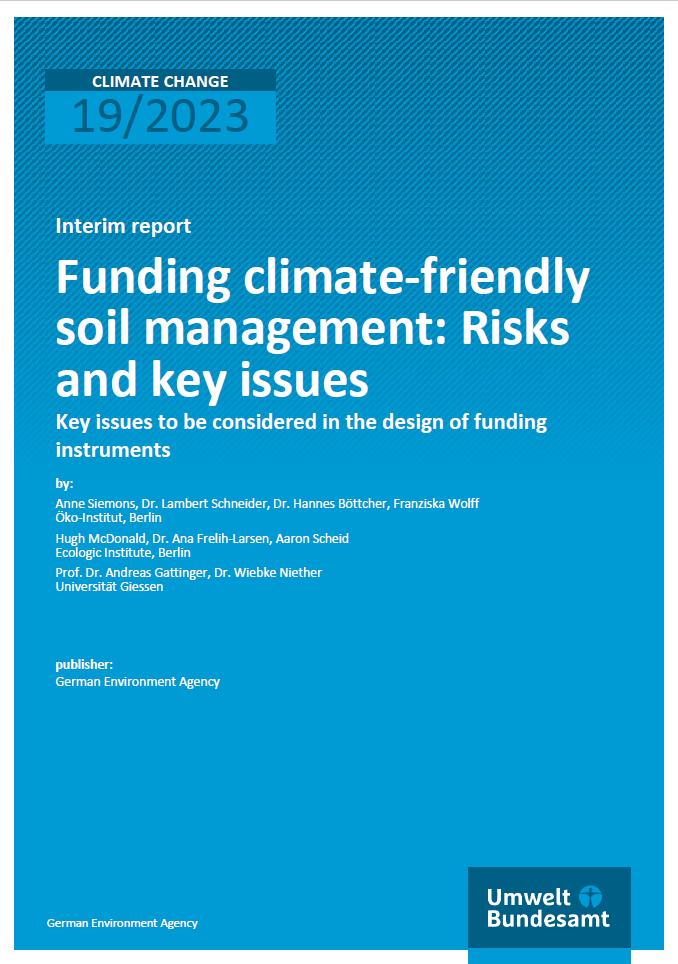Funding Climate-friendly Soil Management
Appropriate policy instruments and limits of market-based approaches
- Publication
- Citation
Siemons, Anne et al. 2025: Funding climate-friendly soil management. Appropriate policy instruments and limits and market-based approaches. Final report. 01/2025. German Environment Agency: Dessau-Roßlau.
Soils are vital for climate mitigation, storing substantial carbon. This report, co-authored by Ecologic Institute's Hugh McDonald, Aaron Scheid and Dr. Ana Frelih-Larsen, examines funding approaches to promote climate-friendly soil management in Europe, focusing on two models: action-based and result-based. Action-based funding supports specific activities but doesn't ensure measurable outcomes, while result-based funding ties payments to verified results, encouraging innovation but requiring higher costs and monitoring. Result-based funding approaches can be challenging in the context of soil carbon, with offsetting approaches found to be particularly risky.
Climate-friendly soil management measures
Soil management measures include land-use changes, like rewetting peatlands, and management practices, such as crop rotations. These different climate-friendly management measures offer different costs and benefits. Many of these nature-based solutions can deliver significant mitigation as well as generating co-benefits such as biodiversity. However, it can be costly to quantify their mitigation impact. Additionally, soils are a relatively unstable store of carbon, posing challenges for policy that seek to promote climate friendly soil management as a climate change solution.
Recommendations for effective policy and funding
We investigate how different funding approaches can be used to promote climate-friendly soil management and support the agriculture sector's transition to net zero. We find that action-based approaches are a good match for many climate-friendly soil management measures, where the risk of non-permanent carbon storage is pervasive. Result-based funding approaches can be a useful way to promote climate-friendly soil management measures that have high mitigation potential that outweighs the cost of monitoring.
Offsetting: not appropriate for climate-friendly soil management
A key focus of the report is critically evaluating the use of offsetting approaches to fund climate-friendly soil management. This subset of result-based funding is growing in prominence through the EU's Carbon Removal and Carbon Farming Regulation and the voluntary carbon market. We analyse ten carbon crediting programs that are examples of this offsetting approach, such as Verra and France's Label Bas Carbone. We identify many challenges, including weak additionality, non-permanence of carbon storage, and inconsistent measurement approaches. Offsetting approaches are not an appropriate instrument for funding climate-friendly soil management measures due to the environmental integrity concerns that these weaknesses create: there is a risk that offsetting emissions in other sectors or locations with climate-friendly soil management will lead to increases in atmospheric greenhouse gases.
Overall, we conclude that while soil management can contribute to climate and biodiversity outcomes, offsetting is no silver bullet. A supportive EU and Member State policy environment is required, along with farmer and agri-food value chain support and involvement.
This report is supplemented by the annex "Analysis of ten Selected Crediting Methodologies for Climate-friendly Soil Management."
